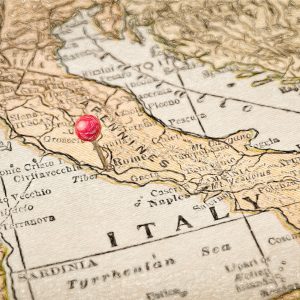The COVID-19 pandemic made 2020 incredibly unpredictable for most countries- that includes Italy. With the virus now winding down due to an increase in the number of vaccination jabs and "business as usual" beginning to resume across the globe, we at Studio MG think it's crucial for accountants or as we call them in Italy -Accountants to take a proactive approach in ensuring that our clients experience post-pandemic growth, whether they are individuals or firms.

The Italian government through its “Cure Italy”, “Liquidity”, “Relaunch” and “August” decree-laws, has implemented a series of fiscal measures, which are focused on supporting Italy's economy through and post the pandemic.
The 'Cure Italy' Decree was introduced in March 2020 as a part of the initial measures by the government to support liquidity by implementing the 'Covid-19' wage supplement scheme, and a moratorium on loans / mortgage repayments. On the other hand, the 'Liquidity' Decree launched in April of the same year is a plan worth over € 750 billion to ensure that Italian businesses have access to more financing and the necessary liquidity that is needed during this difficult period.
The 'August' Decree and 'Relaunch' Decree were both introduced as a series of significant measures to support small businesses, providing immediate protection for enterprises as well as creating the basis for them to relaunch themselves as the pandemic settled down.
'Relaunch' Decree set aside over € 16 billion and continued along the same path of the 'Liquidity' Decree extending the wage supplement scheme and strengthening measures by focusing on liquidity. This in turn helped to take further action in terms of taxation and providing non-refundable grants, to strengthen capital base and achieve recapitalization.

Find below the most significant of measures from the above-mentioned decrees and if you would like to have a more detailed conversation on Italian tax laws and accounting, contact us by clicking here. (studio@studiomg.eu)
Payment of the 2019 IRAP (regional income tax) balance and the first advance IRAP payment for 2020 canceled: The June regional income tax (IRAP) payment was canceled for all businesses and self-employed workers with revenues or fees of up to € 250 million (excluding banks, insurance companies and public administrations and bodies), with approximately € 4 billion being set aside for this purpose only.
A non-refundable grant was introduced: This is for those who run a business / are self-employed with a turnover of up to € 5 million and have recorded a 33% drop or more in their revenues in April 2020 compared with that of the previous year.
This grant is paid by the Italian Revenue Agency, applying a percentage to the difference between the turnover / remuneration amount in April 2020 and the turnover / remuneration amount in April 2019.
Tax credit for the adaptation of workplaces: Creative businesses or businesses carrying out artistic activities, public workplaces, associations, foundations and other private entities, (including third-sector organizations), are entitled to a 60% tax credit for any expenses incurred in 2020 for the work needed to ensure compliance with health requirements and the measures to contain the spread of the COVID-19 virus. This is paid up to a maximum of € 80,000 per beneficiary.
Tax credit for Sanitization and PPE: Businesses are entitled to a 60% tax credit for expenses incurred in 2020 to sanitize surroundings and equipment, as well as to purchase personal protective equipment for workers and users. This tax credit can reach up to € 60,000 per beneficiary.
€1.5 billion set aside to strengthen the capital of state-controlled companies: This is done through share capital increases or alternative forms of capitalization, with the aim to recover and further develop the country.
Cashless plans: Incentives for purchases made using electronic forms of payment, as part of a total of €1.75 billion has been set aside for 2021 to reimburse part of the purchases made using cashless payment methods.
Help to pay rent: The government introduced a tax credit equal to 60% of monthly rent payments for non-residential properties for the months of March, April and May. This tax credit is for those with remuneration or revenues of up to €5 million and who have recorded a 50% drop in turnover due to the Covid-19 pandemic. Hotels are entitled to this tax credit regardless of the turnover recorded in the previous tax period.
€ 64 million refinancing of the "new Sabatini":New subsidiaries are granted to SMEs for investments in new machinery, plant and equipment, equal to the interest calculated on a 5-year loan.
€500 million refinancing of development contracts: This is done to support large-scale production investments and to implement national industrial policies.
€ 950 million in refinancing for the 'Ipcei Fund':To support companies that contribute to implementing important projects of European interest.
Are you curious to find out more about the other series of measures that have been introduced to support private investment and tourism, one of the sectors that have been worst hit by the Covid-19 emergency in Italy? Stay tuned for our next blog that covers this exact topic.
Bibliography:
- 2021. Italy. [online] Available at: [Accessed 2020 May 04].
- Emergency, C., 2021. Support for businesses and the economy. [online] MEF. Available at: [Accessed 19 May 00001].

